Chromosomes
Chromosomes are thread-like structures located in the nucleus of animal and plant cells. They are made of protein and a single molecule of deoxyribonucleic acid (DNA).
Structure of Chromosomes
Each chromosome is made up of two chromatids, which are joined at a point called the centromere. The chromatids are identical copies formed by DNA replication, and they are essential for cell division.
Function of Chromosomes
Chromosomes contain the genetic information that is passed from one generation to the next. They play a crucial role in cell division, as they ensure that each new cell receives the correct amount of genetic material.
Types of Chromosomes
There are two main types of chromosomes: autosomes and sex chromosomes. Autosomes are responsible for determining the majority of an organism's traits, while sex chromosomes determine the individual's sex.
Chromosomal Abnormalities
Abnormalities in the number or structure of chromosomes can lead to genetic disorders such as Down syndrome, Turner syndrome, and Klinefelter syndrome. These conditions are caused by an extra or missing chromosome, or by structural changes within the chromosomes.
Studying Chromosomes
To study chromosomes, scientists use techniques such as karyotyping, fluorescent in situ hybridization (FISH), and chromosomal banding. These methods allow for the visualization and analysis of chromosome structure and abnormalities.
Conclusion
Chromosomes are fundamental to the inheritance of genetic traits and the process of cell division. Understanding their structure and function is essential in the fields of genetics and cell biology.
.◂Biology Worksheets and Study Guides High School. Plant structure and function
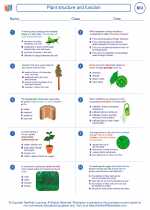
 Worksheet/Answer key
Worksheet/Answer key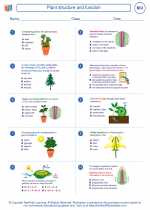
 Worksheet/Answer key
Worksheet/Answer key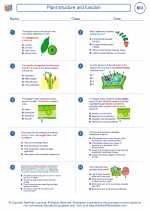
 Worksheet/Answer key
Worksheet/Answer key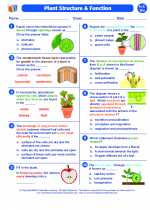
 Vocabulary/Answer key
Vocabulary/Answer key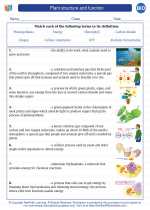
 Vocabulary/Answer key
Vocabulary/Answer key
